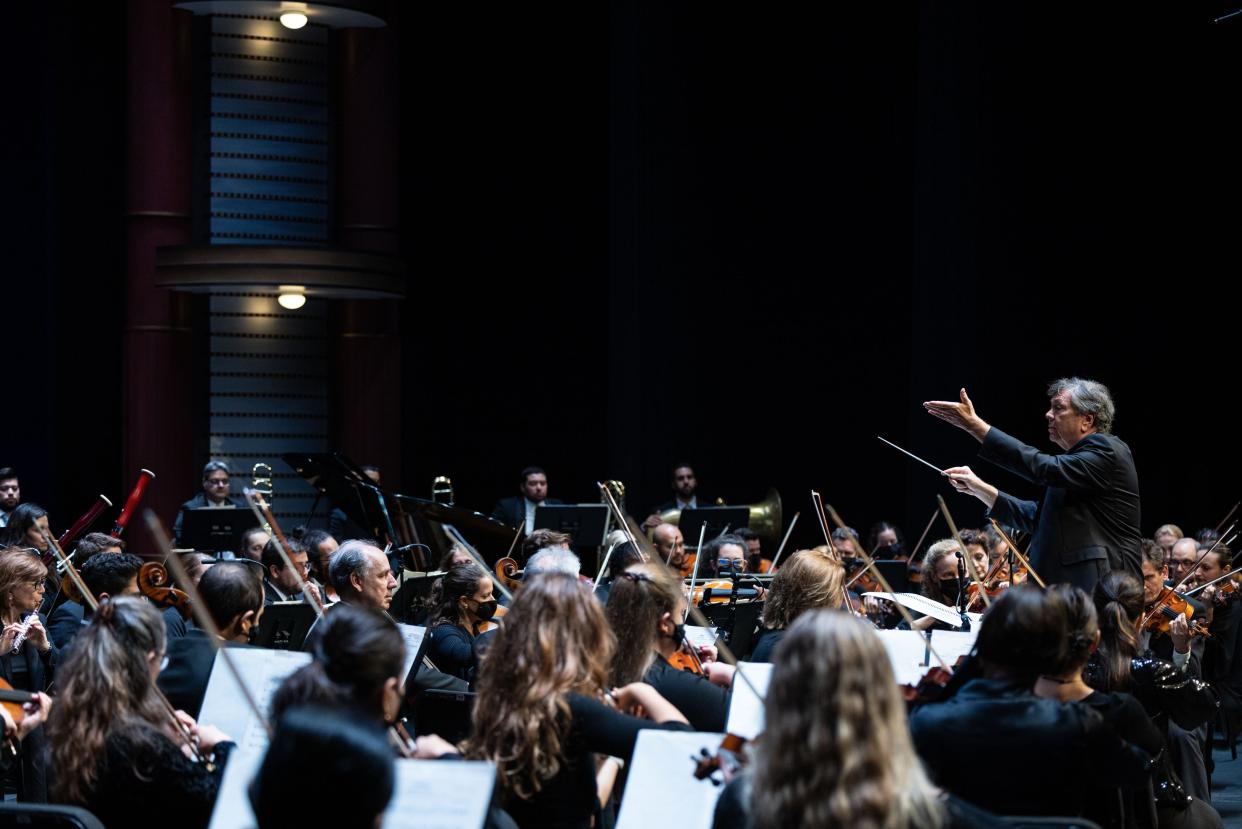Palm Beach Symphony plans two performances of Handel's 'Messiah'

- Oops!Something went wrong.Please try again later.
- Oops!Something went wrong.Please try again later.
No Christmas season, it seems, would be complete without a performance of "Messiah," an oratorio composed by George Frideric Handel in 1741, and which has been popular with audiences ever since.
Indeed, the work has had an unbroken performance history since its premiere in Dublin in April 1742; no year since then has gone by without a performance of "Messiah." That’s quite a record, but there’s a simple explanation for the affection centuries of audiences have had for this musically abundant meditation on the life of Jesus.
“It is loved by everyone, and for good reason,” said Gerard Schwarz, director of the Palm Beach Symphony, in a prepared statement. “It is loved because it is great, great music.”
Schwarz and the symphony have added two performances of this oratorio to their 2022-23 season, and will present them Dec. 9 and 10 at the Rosarian Academy in West Palm Beach. The soloists will be soprano Robyn Marie Lamp, mezzo-soprano Stephanie Doche, tenor Jonathan Johnson and bass-baritone Richard Ollarsaba.
The choir will consist of the Florida Atlantic University Chamber Singers and the Schola Cantorum of Florida, all under the direction of Patricia Fleitas, FAU’s director of choral and vocal studies.
Handel wrote "Messiah" in the fall of 1741 for a charity concert in Dublin to benefit a hospital, an infirmary, and to supply debt relief for prisoners. The libretto was assembled from the Bible by the writer and arts patron Charles Jennens, who also supplied the librettos for "Saul," "Belshazzar" and "Israel in Egypt," three other oratorios — essentially an unstaged opera on a sacred subject — by Handel.
“He has made a fine entertainment of it, tho’ not near so good as he might and ought to have done,” Jennens wrote snippily to a friend about the music Handel supplied to the "Messiah" libretto. The first audience in Dublin evidently was of another opinion, and the press reports were rapturous, such as the review that appeared in the Dublin Journal:
“On Tuesday last (April 13), Mr. Handel’s Sacred Grand Oratorio, the MESSIAH, was performed at the New Musick-Hall in Fishamble-street; the best Judges allowed it to be the most finished piece of Musick. Words are wanting to express the exquisite delight it afforded the admiring crowded Audience.”
The reviewer, noting that the music charmed “the ravished Heart and Ear,” added that the audience of about 700 people — men were asked to attend without their swords, women without their dress hoops, so there would be more room to sit comfortably — raised about 400 pounds to be split by the three charities.
Although many now think of "Messiah" as a Christmas piece, it actually was written for the Easter season, and during its long history as a favorite work of amateur English choral societies, it was performed in the spring rather than the winter. But sometime in the 20th century, that changed, as musicians began to regularly program an abridged “Christmas portion” of the oratorio, which consists of all or most of Part I and excerpts from Parts II and III, especially the Part II finale, the "Hallelujah" chorus. The Palm Beach Symphony will present its own abridgement of the oratorio.
It has long been the tradition for the audience to stand during the singing of "Hallelujah," drawing on a legend that King George II stood up in awe as the chorus began at a performance, thereby requiring the rest of the audience to stand with him. True or not, it is one of the cherished rituals of a "Messiah" performance.
“When we start the ‘Hallelujah’ chorus, it is such a thrill to hear the audience stand up and pay homage to this fantastic choral work,” Schwarz said in his statement.
The performances are set for 7:30 p.m. Dec. 9, and 3 p.m. Dec. 10, at the Rosarian Academy, 807 N. Flagler Drive, West Palm Beach. Tickets are $50, and can be bought at the Palm Beach Symphony box office, 400 Hibiscus St., West Palm Beach, from 10 a.m. to 3 p.m. weekdays; by calling 561-281-0145; or by visiting palmbeachsymphony.org.
This article originally appeared on Palm Beach Daily News: Palm Beach Symphony will present two performance of Handel's 'Messiah'

